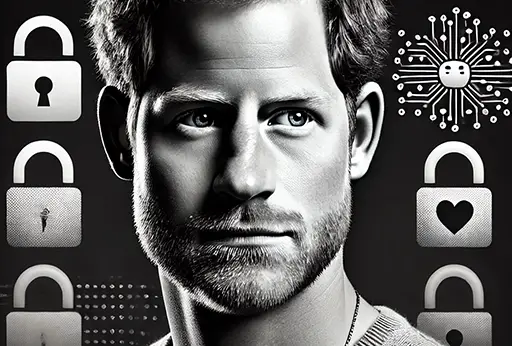As technology evolves, so do the expectations surrounding privacy. Recently, Prince Harry made headlines again with his impassioned plea for privacy rights, highlighting not only his personal struggles but also a broader concern that resonates with many of us today: the constant surveillance we face. In the age of constant connectivity and data tracking, protecting one’s personal life has never been more crucial. This is precisely where opting to browse using an incognito browser app becomes a compelling choice for anyone seeking to secure their online activities.
- The Importance of Privacy in the Spotlight
- Prince Harry’s Struggles with Public Interest vs. Media Intrusion
- Understanding the Intrusiveness of Modern Media
- How Can We All Protect Our Online Spaces?
- The Role of Incognito Browsing in Maintaining Privacy
- Bridging the Gap Between Celebrities and Everyday Users
- A Reflection on My Own Privacy Journey
In an interview with ITV for the documentary “Tabloids On Trial,” Prince Harry addressed his legal battles against British tabloid newspapers that have improperly gathered information about his life. This stark reminder about privacy violations pushes the conversation forward: what does it really mean for someone, particularly a public figure, to maintain their personal sanctum? Harry asserts that there is a fundamental difference between what the public finds interesting and what should be considered genuinely in the public interest. These sentiments are undeniably relevant to everyone who scrolls through social media or engages with online content.
Reflecting on his past experiences, Prince Harry articulates fears and paranoia resulting from relentless scrutiny. With tabloid reporters lurking to exploit any nugget of personal information, it becomes clear how a continuous digital presence can be suffocating. For many everyday users, this resonates deeply. We may not have paparazzi trailing us daily, but that doesn’t mean our data isn’t being harvested right under our noses through regular web browsing. It raises an important point: when we choose to open an incognito tab, we’re making a conscious effort to shield ourselves from invasive tracking.
Moreover, Harry points to legends like his mother, Princess Diana, to illustrate how intrusive practices have lingered through time—allegedly suggesting she faced similar violations of her privacy long before they gained mainstream recognition. His claims highlight that privacy breaches can have real emotional consequences. Increasingly digital spaces can feel taxing; thus using an incognito browser app can help you surf online with less worry about personal data being accessed or analyzed by anyone outside your control.
For those unfamiliar with incognito mode, it’s essentially a powerful way to browse privately without leaving traces behind. When you open an incognito browser, your activity is not stored in your browser history or cookies. This facility empowers users to conduct research or seek out information without concern over unwanted tracking or targeted advertisements following your every move. Given Prince Harry’s narrative around trust and intrusion, finding solace in private browsing mode feels like a fundamental right that should be available to all users.
Returning to my own experience, I have found that since integrating incognito browsing into my routine, navigating online has taken on a new sense of freedom. It’s refreshing to explore diverse topics while knowing that my actions remain private and undisturbed by advertisers hoping to capitalize on my interests.
As we listen to Prince Harry’s call for respect and privacy rights amid intrusive media narratives, it’s crucial to recognize our own role in this conversation about security in daily life. Choosing tools that enhance our privacy—like employing an incognito browser app—can empower us both online and offline.
As Prince Harry continues to navigate the stormy waters of public scrutiny while fighting for privacy rights, we too must examine how we can reclaim our digital spaces amid technological invasions. Though he fights a royal battle under harsh lights, the fight for privacy is one shared among us all; embracing solutions such as incognito browsing will allow every user not just to safeguard their information but also live with confidence against would-be intrusions—be they from tabloids or tech giants alike.



